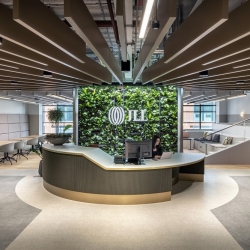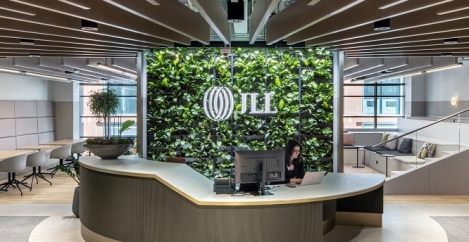November 15, 2023
‘Return-to-office’ rates vary widely across Europe
 A new survey from JLL, Is hybrid really working? [registration] claims that the majority of international organisations (87 percent) are encouraging employees to work from the office at least some of the time. In fact, only 20 percent of employees who can work remotely all of the time or one-two days in the office now do so, down from 39 percent a year ago. However, the data demonstrates varying approaches to the so-called return to office across Europe, with France and Belgium leading, spending an average of 3.5 days working from the office. Germany, Netherlands, Spain and the UK are however lagging behind with an average of 2.5 days working from the office.
A new survey from JLL, Is hybrid really working? [registration] claims that the majority of international organisations (87 percent) are encouraging employees to work from the office at least some of the time. In fact, only 20 percent of employees who can work remotely all of the time or one-two days in the office now do so, down from 39 percent a year ago. However, the data demonstrates varying approaches to the so-called return to office across Europe, with France and Belgium leading, spending an average of 3.5 days working from the office. Germany, Netherlands, Spain and the UK are however lagging behind with an average of 2.5 days working from the office.
While some companies are looking for less but better space, JLL’s data suggests that 18 percent have not yet changed their real estate portfolios and 22 percent have actually increased their footprint. In H1 2023, 79 percent of employees globally were in the office more than three days a week, which compares to 51 percent in H1 2022, showing workstyles are evolving with more of us working for more days in the office.
According to the poll, workers continue to find value in the physical office as a hub for socialisation, innovation, and professional growth, but report that commuting, noise, and lack of privacy are the top barriers to working from the office.
The ambition to create flexible, amenity rich, collaborative spaces is driving employers to transform their workplace. According to JLL, 42 percent of office space globally has already been adapted to meet the changing needs of employees. And 69 percent of organizations are implementing shared workstations in an attempt to make a better use of their office space by supporting a wider diversity of needs.
Flore Pradère, Research Director, Global Work Dynamics Research, JLL, commented: “While return to office rates vary by region and geography, office attendance is starting to hit an equilibrium in terms of existing days in the office and employee expectations, with a third of organisations across the globe now making attendance compulsory on particular weekdays. Working patterns are more established and employers and employees know where they stand – flexibility for both parties remains key.
“It’s clear that the office still plays an important role for employers – it is critical to influencing corporate culture, encouraging engagement and collaboration, and supporting the health and wellbeing of the workforce. There’s more certainty as employers take stock of where they are and start to plan for the future on a more solid foundation.”
















